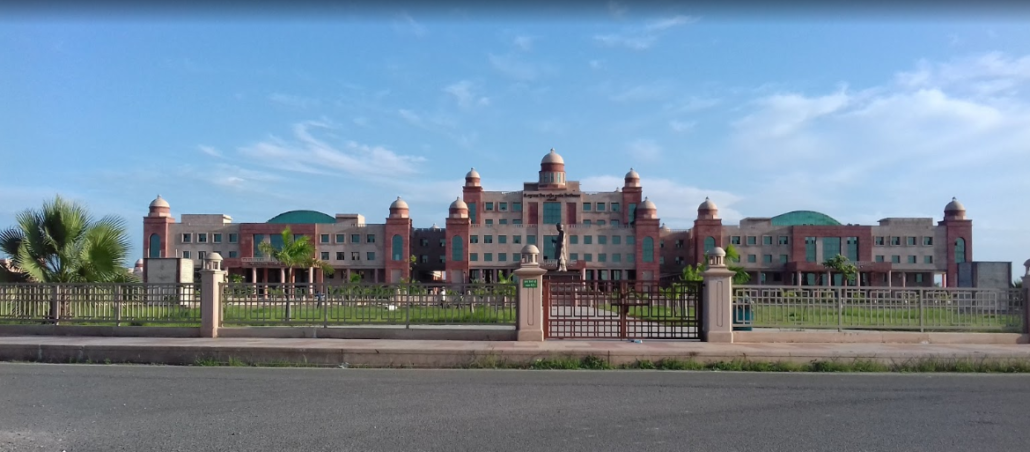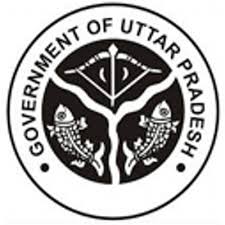
Dr. Shakuntala Misra National Rehabilitation University, Lucknow

Dr. Shakuntala Misra National Rehabilitation University:
1. Introduction and Synopsis:
The Dr. Shakuntala Misra National Rehabilitation University (DSMNRU), which was established in 2008 in Lucknow, Uttar Pradesh, is India’s first university devoted to the fields of inclusive education and disability rehabilitation. DSMNRU, named after the prominent social reformer and advocate for people with disabilities Dr. Shakuntala Misra, offers mainstream and rehabilitation-focused programs to ensure that higher education is accessible to all students. The university, which is run by the Uttar Pradesh Government, offers a wide range of undergraduate, graduate, and research programs in a variety of fields. DSMNRU quickly rose to prominence in Northern India thanks to its comprehensive approach to disability support and rehabilitation research.
2. Vision and Purpose:
The university’s mission is to build an inclusive society where people with disabilities can get an education and a job of high quality. The goal of DSMNRU is to create a setting where students with disabilities can learn and grow alongside their peers by integrating disability studies into mainstream education. By offering comprehensive educational programs that emphasize personal development, professional competence, and a commitment to social justice, the university aims to empower its students. Through research, innovation, and outreach efforts, it aims to be a leader in rehabilitation studies and disability support.
3. Facilities and Campus:
DSMNRU’s Lucknow campus is designed to be inclusive and accessible, with facilities designed to meet the needs of all students, including those with disabilities. The most important features include:
Main Library: The DSMNRU has a cutting-edge central library with more than 100,000 volumes, journals, and other materials for research in a variety of fields. In order to assist visually impaired students, the library has Braille printers, screen readers, and other assistive technology. All students have access to an online catalog and digital resources.
Facilities for Specialized Rehabilitation: DSMNRU is a rehabilitation-focused university with a number of specialized centers for audiology, physiotherapy, and speech therapy. Students as well as members of the surrounding community are welcome to use these facilities, which offer essential services and practical training to rehabilitation program participants.
Lab for Assistive Technology: The most recent tools to help students with disabilities learn are in the assistive technology lab at DSMNRU. Adapted computers, speech-to-text software, and other devices ensure inclusive digital learning in the lab.
Private Offices: The university provides wheelchair-accessible accommodations and accessible hostel facilities. Men’s and women’s separate hostels have dining options and common areas designed specifically for students with disabilities.
Recreational and sports facilities: All students at DSMNRU are encouraged to exercise and participate in recreational activities. There are sports facilities on the campus that can be used by wheelchairs, like an adaptive sports field and a gymnasium with special equipment for students with disabilities.
4. The Arts, Commerce, Science, Management, and Rehabilitation Science faculties
all offer a wide range of courses at DSMNRU. The university’s courses focus on rehabilitation and mainstream studies, providing one-of-a-kind opportunities for specialized training. Some important programs are:
BA: Bachelor of Arts English, sociology, political science, and history are among the specializations available in the BA program. Critical thinking, cultural awareness, and analytical skills are built into the curriculum.
B.Sc. (Bachelor of Science): The DSMNRU B.Sc. Specializations in computer science, physics, chemistry, and mathematics are all part of the programs. All students can participate in these programs, which combine theoretical knowledge with practical application.
B.Com. (Bachelor of Commerce): Students in this program are prepared for careers in finance and business. Financial management, accounting, and corporate law are all covered in the B.Com curriculum.
Bachelor of Education in Special Education: The Ed.B. in Special Education prepares future educators to teach disabled students. One of the university’s most well-known programs covers the theory and practice of special education practices.
Doctoral and Master’s Degree Programs: In addition, DSMNRU offers PhD programs for advanced research in rehabilitation and the social sciences as well as master’s programs in fields like psychology, English, and social work.
Diplomas and courses in the workplace: The university offers short-term diploma programs in disability rehabilitation, occupational therapy, and sign language, all of which are designed to help people with disabilities.
5. The admission procedure
at DSMNRU is straightforward, and each program has its own set of requirements. The eligibility requirements for prospective students vary depending on the program’s level and discipline:
Courses for Undergraduates: Applicants must have completed their 10+2 education, and each course has a minimum percentage requirement.
Programs for Graduates: Master’s program applicants must have a relevant bachelor’s degree. For some postgraduate programs, the university may also conduct interviews and entrance exams.
Disabilities and Reservations: DSMNRU adheres to the government’s reservation policy for SC/ST/OBC and economically disadvantaged groups. As a sign of the university’s commitment to diversity, a particular quota is set aside for students with disabilities.
Scholarships: Students are given scholarships by DSMNRU based on their merit, financial need, and disability status. Additionally, there are a number of scholarships funded by the government that make it possible for students from disadvantaged backgrounds to attend college.
6. Faculty and Teaching Methodology:
DSMNRU is proud of its highly qualified and experienced faculty in a variety of fields, such as rehabilitation sciences, social work, the humanities, and business. Methods that accommodate all students, including those with disabilities, are utilized by faculty members who take a student-centered approach to instruction. This strategy uses:
Interactive Education: Students are encouraged to participate in discussions and group projects as a result of the interactive nature of the classes, which encourages collaboration.
Experiential and Practical Education: Through community involvement, workshops, and field trips, rehabilitation programs emphasize practical learning. Students in vocational, social work, and special education programs get hands-on experience that helps them get ready for their careers.
New Ideas and Research: Students are encouraged to participate in research projects that address disability issues, social inclusion, and other pertinent topics by faculty members. The university supports research that aims to develop novel solutions for the disabled community by addressing real-world issues.
7. Extracurricular Activities:
DSMNRU provides a wide range of extracurricular activities that are open to all students and help students feel part of a larger community. The most important activities include:
Cultural occasions: The university’s foundation day and Diwali celebrations, among other cultural festivals and annual events, give students a chance to show off their skills and foster cultural unity.
Sporting Events: For students with disabilities, the university offers adaptive sports like wheelchair basketball and boccia. It also encourages students to participate in state and national competitions and organizes intercollegiate sports events.
Social Assistance: DSMNRU encourages students to participate in disability awareness campaigns, environmental drives, and community outreach programs through the National Service Scheme (NSS).
Clubs for kids: Students can explore their interests in theater, technology, literature, and photography through a variety of student-run clubs. The student body benefits from these clubs’ emphasis on leadership, teamwork, and creativity.
8. Opportunities for Careers and Placement:
The placement cell at DSMNRU helps students find work in areas related to their studies. In order to provide graduates with job opportunities, the university works with a variety of NGOs, rehabilitation facilities, and business establishments. The placement support’s highlights include:
Career guidance: Workshops on resume building, interviewing techniques, and career counseling are held by the placement cell.
Opportunities for Internships: In order for students to gain practical experience, DSMNRU encourages them to complete internships with organizations that work in rehabilitation, special education, and social services.
Drives for Placement: The placement cell connects students with potential government and private sector employers and organizes recruitment drives.
9. Impact on the Community and Alumni Network :
DSMNRU has a strong alumni network that backs the university’s inclusion and rehabilitation goals. Workshops, career counseling, and job referrals are all common ways in which alumni help the university. The university’s impact extends beyond the campus because it maintains strong ties with organizations that work in rehabilitation, community development, and disability rights. The graduates of DSMNRU have gone on to have successful careers in areas such as education, social work, rehabilitation, and government services, frequently advocating for social inclusion.
10. Conclusion:
As a model of inclusivity in higher education, Dr. Shakuntala Misra National Rehabilitation University, Lucknow, bridges the gap between general education and specialized rehabilitation studies. DSMNRU is an outstanding establishment thanks to its commitment to empowering students with disabilities, cutting-edge facilities, and comprehensive approach to disability support. DSMNRU continues to empower students to excel academically and professionally, fostering a society that values and supports every individual’s unique potential through its innovative programs, supportive faculty, and vibrant campus life.
Courses/Programs
| Serial# | Title | Estimated Cost | Program type |
|---|
